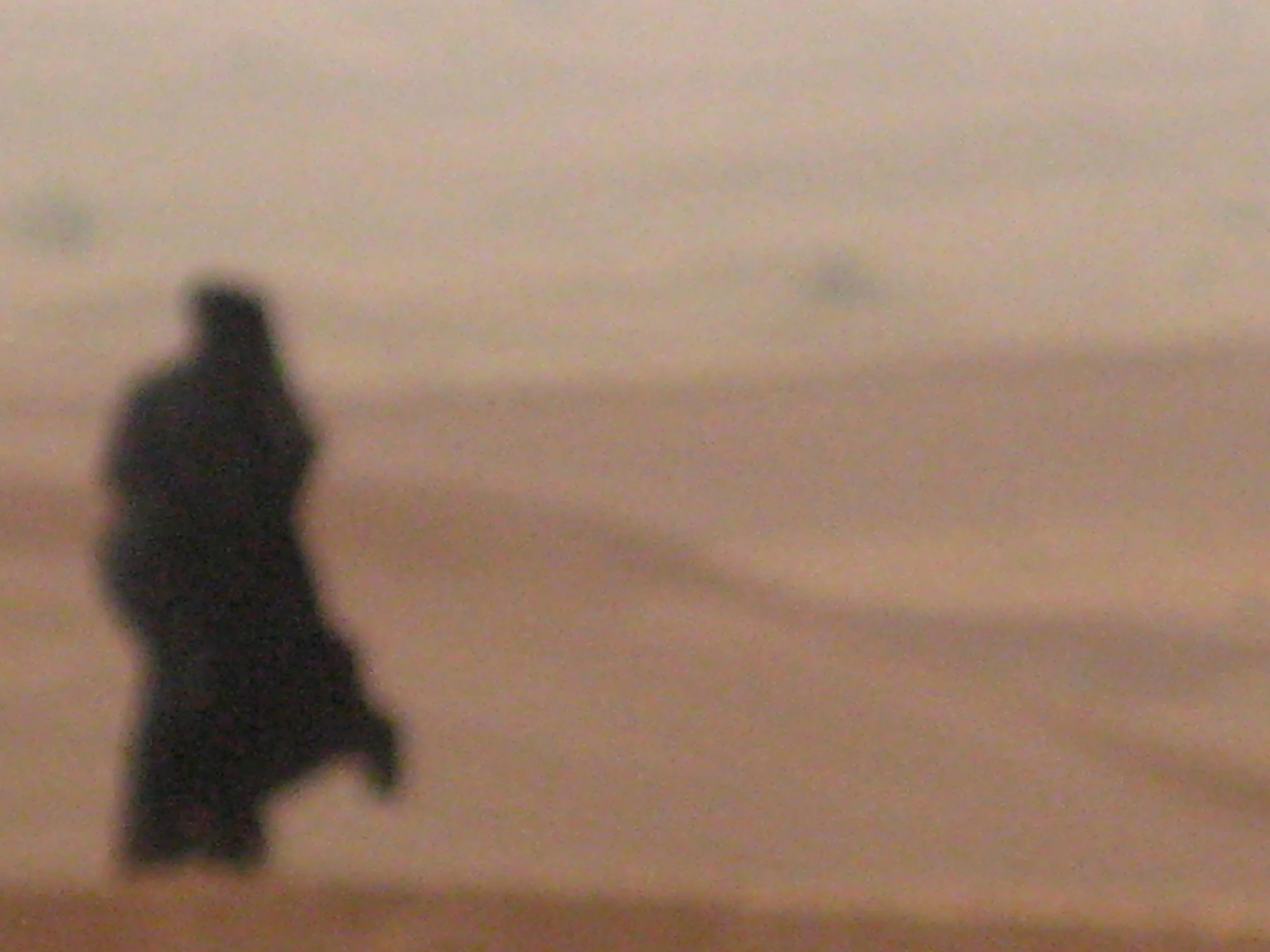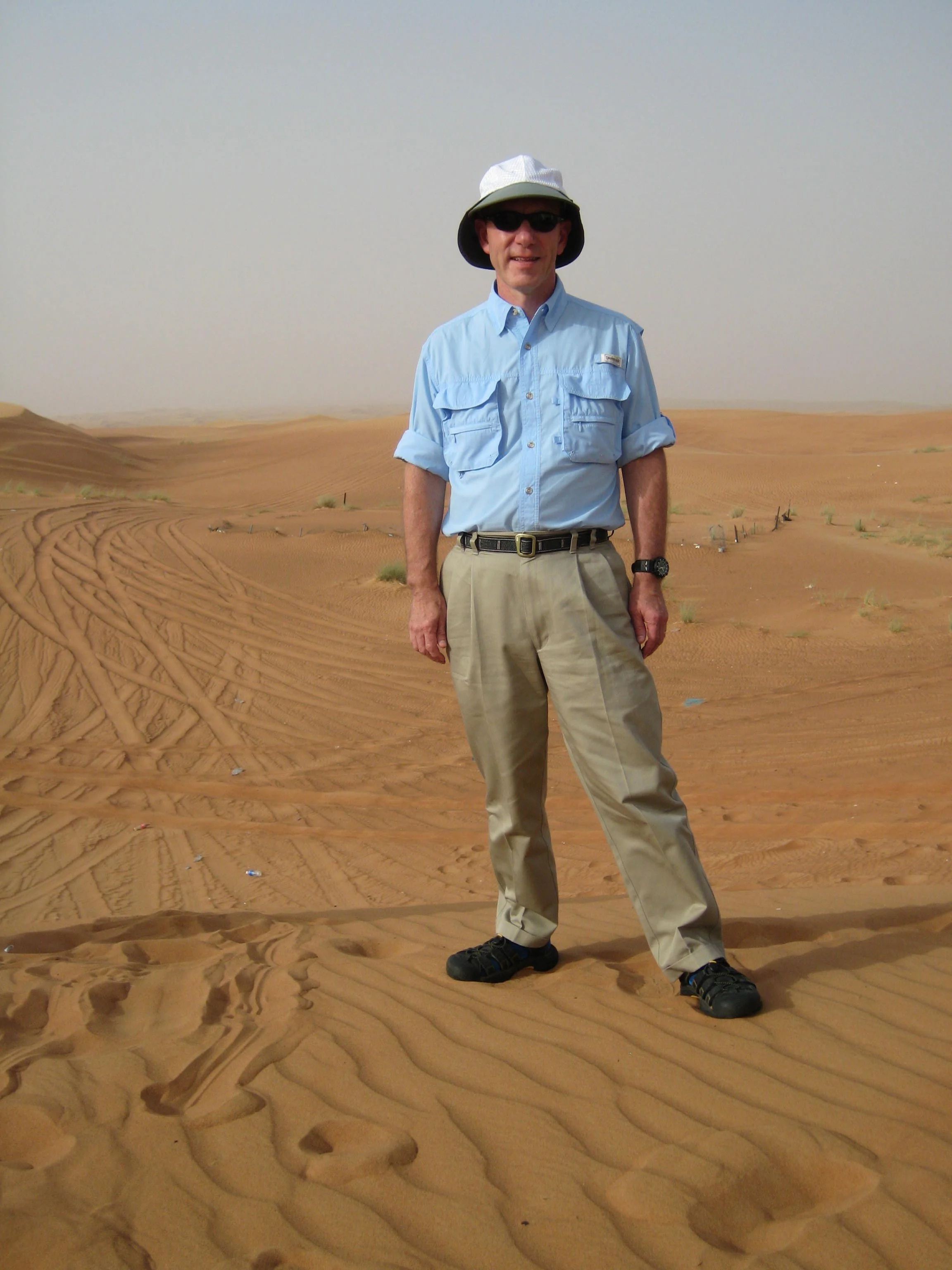Darkness in Bigfork
The Arabian Desert
Two summers ago, I’ve noted in my journal, I was in Bigfork, Montana sitting with a cup of coffee, contemplating Psalm 18, and observing five turkeys strut their stuff as they trekked past my porch.
Benjamin Franklin wrote to his daughter in 1784 that he felt the turkey would be a preferrable symbol of America to that of the eagle. Turkeys are courageous, the eagle a bird “of bad moral character” he felt. Something to do with being lazy fishermen.
Yes, well. The eagle prevailed, poor fishing notwithstanding.
This morning, I once again have a cup of coffee with Psalm 18 laid open in front of me. But instead of Flathead Lake and parading turkeys, I’m in Fort Worth listening to the popping sound of the lawn sprinkler and the cooing calls of a mourning dove.
God arrives in terrifying tumult.
Psalm 18 is a song of deliverance. David was being hunted by King Saul who wanted to kill him and leave his body in the desert for the buzzards. Fearing for his life, David cried out to God for protection. And, the Lord delivered him.
But it’s in the backstory of God’s rescue that David conveys something important.
Yes, God answered David’s cry for help, but He appears during David’s distress and turns a threatening storm into a monstrous maelstrom. Thick, dark clouds, David states. God arrives upon the wings of a howling wind, and brings with Him enveloping darkness, darkness akin to the dark of the deepest ocean. David loses his way. He’s disoriented. Ground fog so thick his judgment is impaired. Then, the foreboding clouds erupt. Hail. Pummeling . Thunder. Bruising. Lightning. Piercing.
God responded to David’s cry from his dark place, but God’s deliverance is so destructively disorienting that the earth’s elements are denuded and the foundations of the world laid bare.
The UAE
It's in the midst of all this—don’t miss David’s point: God arrives in terrifying tumult and not only are David’s enemies consumed, but David himself is overwhelmed by darkness, deep waters, and disorienting fog. Not only are David’s enemies struck by hail, shocked by lightning, and pierced by God’s arrows of truth, but David is as well.
And then. Then. Only then, does David report, “He drew me out of many waters” (v. 16).
David was in trouble. He called out to God. God bent the heavens and came down. But His coming made circumstantial matters worse.
As I reconsider this psalm, I note that David couldn’t distinguish between the dark evil hunting him and the darkness of God engaging.
After the fact, David tells us: Evil darkness and God’s darkness surrounded me, engulfed me, took me to the depths. My soul was in disarray. Evil brought a storm sufficient to take my life, and from my hiding place, when it appeared evil would consume me, God appeared and darkness became deep darkness. Disorientation became an absolute fog. I feared for my life in the face of evil, and when God arrived, I sunk to the depths because the terrors—evil’s and God’s—were so great.
God dwells in darkness.
It's Christmas 1939. The darkness of Nazism is consuming Europe and seizure of Great Britain is imminent and seems inevitable. Fear reigns. Uncertainty is the only given. Any notion of hope is shrouded in death, accentuated by the thunder of Hitler’s panzers on the continent and the shriek of his Stukas dive-bombing fire upon the British Isle.
In his majesty’s Christmas broadcast, King George VI quotes Minnie Louise Haskins: “And I said to the man who stood at the gate of the year: / ‘Give me a light that I may tread safely into the unknown.’ / And he replied: / ‘Go out into the darkness and put your hand into the Hand of God. / That shall be to you better than light and safer than a known way.’”
The King concluded, “May that Almighty Hand guide and uphold us all.”
It is true that God is light, but it is also true that God dwells in darkness. How could He not be? He created all, is all, and is everywhere. Given that you are in Him, He is in you, and you are engulfed in deep waters of darkness, it’s not possible for Him to not be present in your darkness, your dark place, or your deep waters.
Isaiah says God’s treasures are located in deep darkness, implying that revelation may come in the light, but the treasures of God are discovered in hidden, dark depths. But lest Isaiah leave you groping, he also states that you are not alone. God is in your depths calling your name (cf. 45:3).
David wasn’t alone in the darkness of his trial in the wilderness. Neither are you.
But it’s worth noting: It’s not possible to testify of God’s rescue from the depths if you have not been to the depths and experienced a dark night of the soul. Sometimes, the worsening that threatens your equilibrium and saps your confidence is the intentionality of God. After all, if you could navigate your way through, you wouldn’t need rescuing and if your darkness wasn’t total it couldn’t be imminent, inevitable, and inescapable demise.
The reality is: You can’t do much about the dark forces surrounding you.
This leaves you two options: You can lament the depths or you can go out into the darkness and put your hand into the hand of God.


